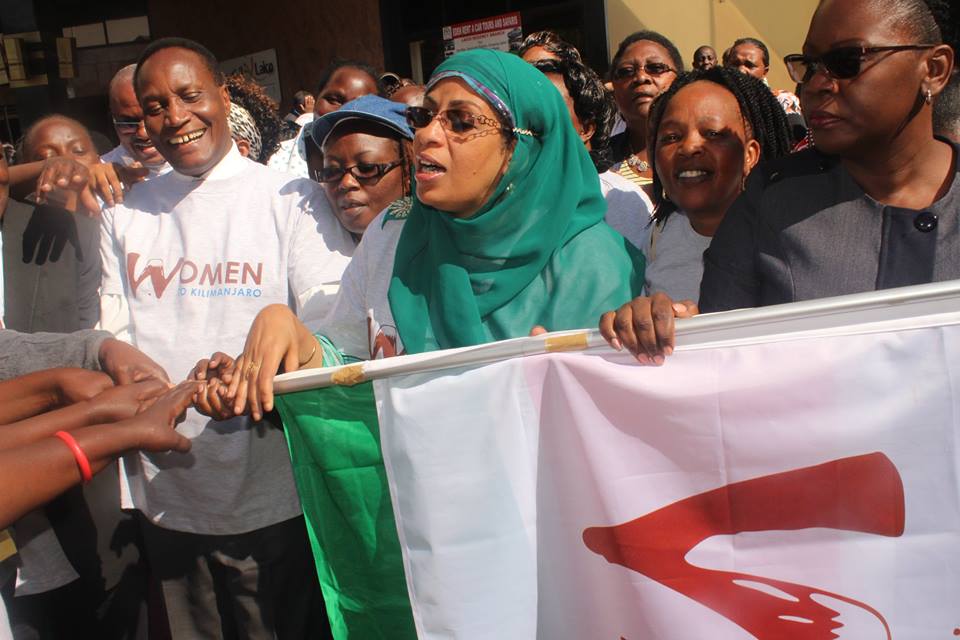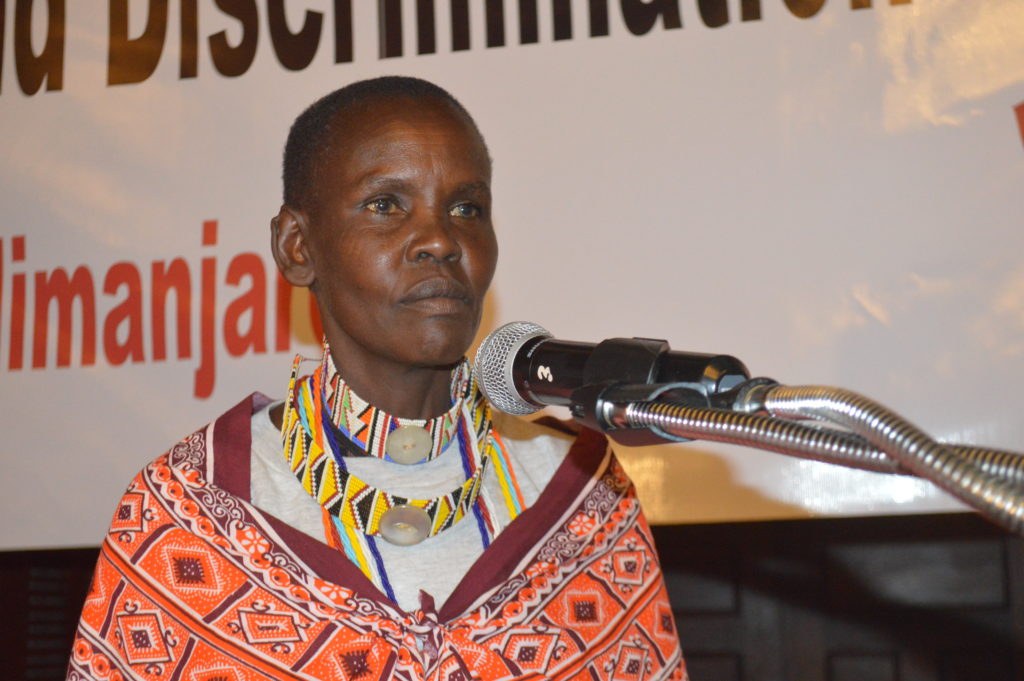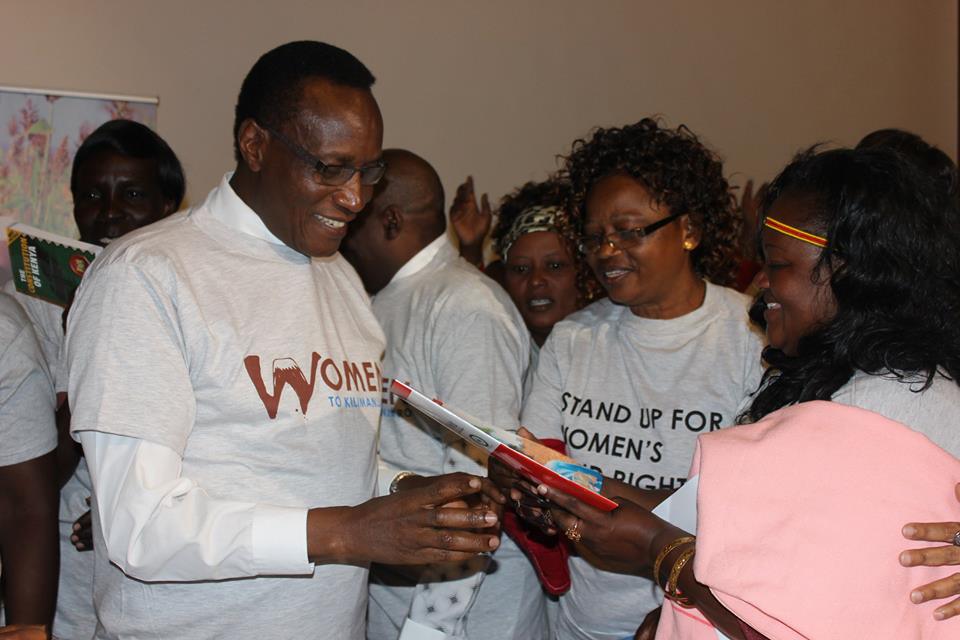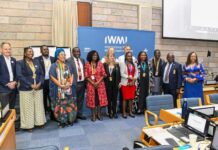|
Getting your Trinity Audio player ready...
|
By Mary Mwendwa
Women in Africa have for a long time been victims of human rights injustices especially in areas of accessing property rights among them land ownership.
During a meeting hosted by ActionAid Kenya and other partners in Nairobi to officially flag off a trip to the tip of Mt.Kilimanjaro where over 300 women and men will converge and present a charter collectively.The women who will represent other women in Africa will stand in solidarity to give a strong voice to governments that they have had enough in areas of land rights which has continuously denied them opportunities to get a better livelihood.

Mary Aleka, is a woman of middle age from Taita Taveta County in Kenya’s Coastal region. She was among the women going to Mt.Kilimanjaro. Her tribulations reflect a clear picture of how many women suffer as far as land related issues are concerned. She narrates her story;”Iam a victim of land injustice from Taita Taveta county , it makes me feel very sad because long time ago in the early 70s we lived peacefully and even owned a community ranch.Then things started changing when institutions like churches and schools were set up and the worst came when in 2007 some investors whom we did not know of their origin came in and started threatening us and finally in 2008 we lost our land.We were evicted forcefully making us loose property and our children lives affected especially education and livelihood at large.When we try to get back to that land we are chased away and nobody has ever come to our rescue to help us sort this tough issue.”
Mary continues to say that during such kind of evictions they lost important documents like title deeds and also some women were raped in the process.”This eviction led to a sanctuary to be put up where no environmental impact assessment was done and here we are living with wildlife where we do have alot of human wildlife conflict problems.Elephants invade our small farms and we are left hopeless.I urge the ministry of lands to speed up the implementation of community land Bill 2016.”She laments.
The community Land Bill of 2016 signed into law by Kenya’s President Uhuru Kenyatta on August 31, lays out the steps for communities to acquire titles to their ancestral land. Around two-thirds of Kenya’s land is customarily owned by communities without formal title deeds, making it easy for corrupt individuals to sell or lease the land without the communities’ knowledge .This has put many women in vulnerable situations like Mary where they are not able to own land .

Women living with disability also pointed out how at grassroots level they are denied basic rights like education and this has contributed to their suffering .One lady living with disability, Lucy Nkatha called upon stakeholders to mainstream disability as an agenda as they try to solve the issue of land rights.”Women living with disability are always left out in many matters pertaining to development yet we can still participate just like any other person.”She said.
According to Bijan Kumar, Executive Director , ActionAid Kenya, “It is evident that many women do not have access to land rights in Africa.We need to recognize that widows many at times are denied rights to own land .In Kenya we have a constitution which gives everyone a right to get fair treatment in accessing any service .Therefore it is paramount for women to come out with a strong one voice to claim their rights. Women to Kilimanjaro is such a voice !”

Mohammed Swazuri, Chair , National Land Commission chairman, notes with concern that all the demands women are putting across have been legislated in the Kenyan government.The biggest challenge has been implementation.”Iam calling upon women to change tact in the way they are seeking their voices to be heard , and one strategy is to involve men in their campaigns , a good example is this Kilimanjaro one where men are part of .”
Jacob Kaimenyi, Cabinet Secretary, Ministry of Lands and Physical Planning, flagged off the Kilimanjaro campaign trip by urging women to seek justice by using institutions like the National Land Commission who have the mandate to address some of the historical land injustices that have gripped women for a long time.He added that the government is spearheading efforts to see equitable access to land is achieved and elimination of gender discrimination achieved at all levels.He concluded by saying the definition of public land is very broad, something hence posing a big challenge in handling public land issues.
The demands contained in the charters women representing various African Countries among them Kenya, Uganda, Tanzania, Rwanda ,South Africa, Mozambique, Namibia, Senegal, Nigeria, Malawi, Seychelles, Morocco, Tunisia, Cameroon, DR Congo, Zimbabwe, Ghana and Togo, are :
- Promoting women’s effective participation on land governance units from local level
- Policy and legal reforms that are relevant to realization of women land rights
- Engendering of land administration and governance
- Strengthening of women access and ownership pf land and common property resources
- Regulation of large scale land acquisition
- Access to justice for women land rights
- Social inclusion for women with disability and those living with HIV /AIDS on land
- Increased public investment in livelihood and security that does not endanger women land rights
- Protection of land right activists advancing women land rights
- Accountability in the delivery of the demand as captured in the charter














